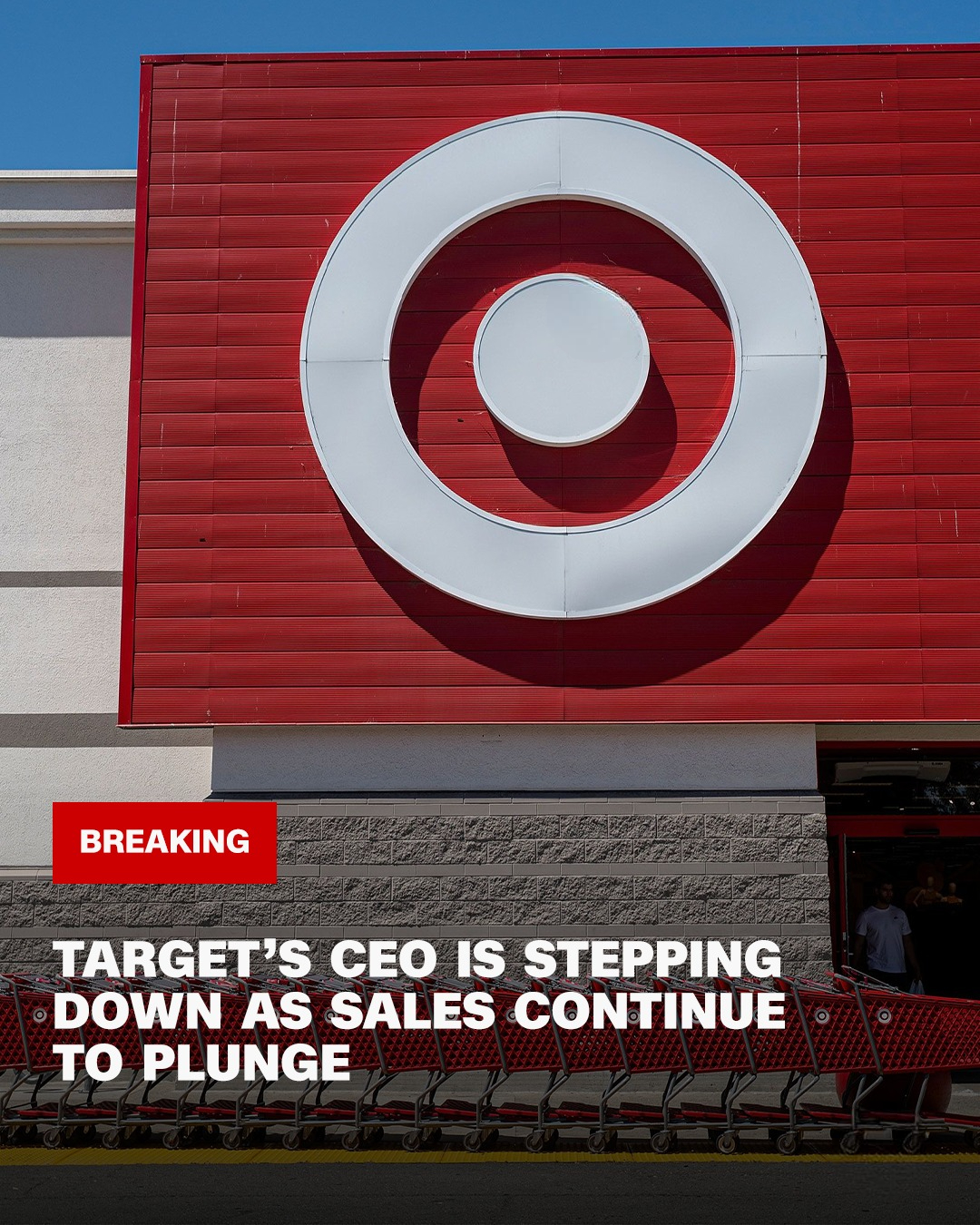Target CEO Brian Cornell is stepping down after 11 years leading the retailer, marking the end of an era that saw the company experience both a major turnaround and significant setbacks in recent years. His departure, though long expected, comes at a time when Target is grappling with slumping sales, shrinking investor confidence, and growing backlash over its decision to scale back on diversity, equity, and inclusion programs.

While many industry experts had predicted the company might bring in an outsider to deliver a fresh perspective, the board instead chose an internal successor. Cornell will be replaced on February 1, 2026, by Michael Fiddelke, the company’s current chief operating officer. Fiddelke, who began his career as an intern at Target and has now spent 20 years with the retailer, was selected from what Cornell described as a “strong list of external and internal candidates.” Cornell praised him on a call with analysts, calling him the “right candidate to lead our business back to growth.” Cornell himself will remain as executive chairman, ensuring some continuity at the top.
When Cornell first took over in 2014, Target was in the midst of challenges, but under his leadership the company revitalized its image, invested heavily in store remodels, and strengthened its e-commerce capabilities to better compete with Amazon and Walmart. Those early years were marked by strong success, with Target reporting its best results in a decade in 2018 and Cornell even being named CNN Business CEO of the Year in 2019. The company also boomed during the pandemic in 2020 and 2021, as customers rushed to buy essentials, home goods, and office supplies.
However, the past three years have brought a dramatic reversal. Target has struggled as shoppers cut back on discretionary purchases such as clothing and home décor, which make up more than half of its merchandise. This has left the chain particularly exposed compared to rivals like Walmart, which generate nearly half of their revenue from groceries. Target also imports about half of its products compared to Walmart’s one-third, making it more vulnerable to tariffs and forcing it to raise prices at almost double the pace of its competitors.
These pressures, combined with inflation and a broader consumer slowdown, have dragged Target into a prolonged slump. The company reported its third consecutive quarterly sales decline this week, with shares tumbling 10% in premarket trading. Target’s stock has now become one of the worst performers in the S&P 500 this year. Many investors had hoped a leadership change would usher in a fresh direction, but the decision to promote from within sparked criticism that the board was sticking to the same inward-looking strategies that have contributed to the current problems. Neil Saunders, an analyst at GlobalData Retail, said in a note that the internal appointment “does not necessarily remedy the problems of entrenched groupthink” and argued that Target has “lost its grip on delivering for the American shopper.”
Compounding these financial challenges has been the controversy surrounding Target’s retreat from DEI programs earlier this year. The decision outraged many progressive customers and even members of the Dayton family, descendants of one of Target’s co-founders, who labeled the move “a betrayal.” Reverend Jamal Bryant, who led a boycott against the retailer, said shoppers felt abandoned, and Target itself admitted the decision negatively impacted sales. The company was not alone in scaling back such programs, but it faced sharper backlash because it had once embedded DEI deeply into its identity and cultivated a customer base that leaned more progressive than its rivals. At the same time, Target has also faced political attacks from the opposite side. In 2023, the company was hit with a wave of conservative backlash over its LGBTQ Pride Month merchandise, with employees facing threats and misinformation spreading online about swimsuits designed for transgender people.
Though the swimsuits were not marketed to children, social media outrage forced Target to remove some items from stores, which in turn led to lawsuits from Republican-aligned legal groups and another dent in sales. These controversies, combined with missteps in inventory management in 2022 and the effects of inflation, have shaken confidence in Target’s direction. Cornell’s final years as CEO have therefore been marked by turmoil rather than triumph, with the chain losing ground to rivals like Walmart, Amazon, and Costco. On Wednesday’s analyst call, Fiddelke admitted that Target “must improve” and said the company is “not realizing our full potential right now.” He outlined a strategy to re-energize Target’s product offerings, make stores more inviting, and increase investments in technology.
He highlighted a new initiative called “Fun 101,” designed to seize on consumer trends in electronics and home goods, and pledged that price hikes would only be a last resort despite ongoing tariff pressures. Analysts remain divided over whether these adjustments will be enough to restore Target’s momentum. Some believe the problems are fixable, while others argue the company faces deeper structural challenges and a deteriorating long-term outlook. Robert Ohmes, an analyst at Bank of America, warned that Target is “falling behind peers and has tougher challenges.” For Cornell, his legacy is now a complex mix of early success and recent struggles, while for Fiddelke, the challenge is enormous: to repair consumer trust, stabilize sales, and reposition Target as a leader in the retail sector.





